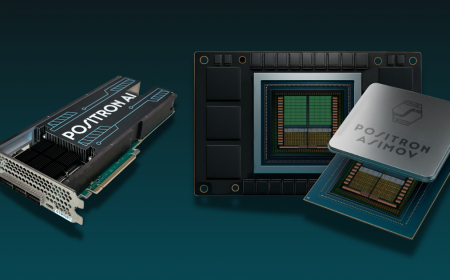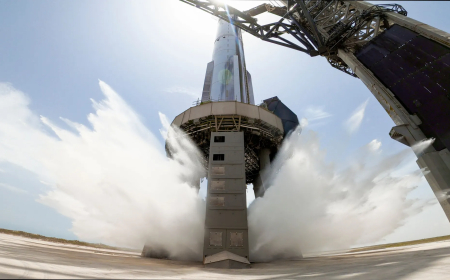The Future of AI in Money Transfers: Revolutionizing the Wire Transfer Industry
AI is transforming the money transfer industry by improving speed, security, and customer experience. From automating compliance to enhancing fraud detection, AI is reshaping how we send and receive money, making transfers faster and more secure.

Artificial Intelligence (AI) is positioned to dramatically change the landscape of financial transactions, particularly in the area of money transfers. As the world continues to become more interconnected, the need for faster, more efficient, and secure money transfer systems is more critical than ever. AI is proving to be a transformative force, offering solutions that streamline operations, improve security, and reduce costs, all while enhancing the user experience.
AI-Powered Money Transfers: The Mechanics
AI in money transfers goes beyond simply sending funds between accounts—it’s about optimizing the entire process. With the help of advanced machine learning algorithms, AI systems can automate routine tasks, identify transaction patterns, and predict potential issues before they arise. For instance, AI can monitor transaction behaviors, flagging anomalies that may indicate fraudulent activity, which makes transfers faster and more secure.
Additionally, AI plays a key role in automating compliance checks, which are required by governments and financial regulators. This includes verifying customer identities (often referred to as KYC, or "Know Your Customer"), detecting suspicious activity, and ensuring that cross-border transfers comply with local laws. What was once a time-consuming process is now completed nearly instantaneously through AI-powered systems.
Speed and Efficiency: Reducing Waiting Times
A major challenge with traditional money transfers is the time it takes to complete them. International wire transfers often take days to process, especially when intermediaries and cross-border regulations are involved. However, AI can significantly reduce processing time by linking financial institutions through intelligent networks, improving data flow and minimizing the delays that have typically slowed transfers.
For example, blockchain technology, in conjunction with AI, can facilitate real-time settlement of transactions, reducing reliance on central clearinghouses and intermediaries. This would enable users to send funds instantaneously, with lower fees and greater transparency than ever before.
Security Enhancement: Combatting Fraud with AI
When it comes to transferring large sums of money, security is always a top priority. Traditional money transfer methods are vulnerable to fraud, but AI offers innovative ways to safeguard transactions. Through advanced machine learning techniques, AI can analyze vast amounts of data in real-time, identifying patterns that may point to fraud.
AI can also track unusual transaction patterns, flagging suspicious transactions before they can be completed. Furthermore, AI-driven biometric authentication, such as facial recognition and fingerprint scanning, is becoming more commonplace in money transfer apps, providing users with an added layer of protection.
Personalized Experiences: AI Enhancing Customer Service
AI’s impact on money transfers also extends to customer service. AI-powered chatbots and virtual assistants are becoming standard features in many money transfer platforms. These tools offer instant support, help users navigate the transfer process, and answer common questions in real-time.
Additionally, AI can analyze transaction history to offer personalized advice, recommending the best transfer options based on past preferences or current market conditions. This reduces human error and wait times for support while also improving customer satisfaction.
The Future of AI in Money Transfers
Looking forward, AI will continue to drive change in the world of money transfers. As technology advances, we can expect even more cutting-edge solutions, including AI-driven cryptocurrency exchanges, predictive analytics, and automated investment tools. The integration of AI into smart contracts and cross-border payments will also simplify and accelerate international transactions.
Challenges and Considerations
While the future of AI in money transfers holds immense promise, it is not without its challenges. Data privacy and security remain significant concerns, especially as more sensitive personal and financial data is processed by AI systems. Additionally, regulatory compliance is a major consideration, as many countries have strict laws governing money transfers and data protection.
However, as AI technology continues to evolve, it is expected to provide more robust solutions to these challenges, opening up new opportunities for innovation in financial services.
Conclusion: A Bright Future for AI in Money Transfers
In conclusion, the integration of AI into the money transfer industry is poised to redefine how people send and receive money. From increased transaction speed to enhanced security and personalized experiences, AI is ushering in a new era of financial technology that benefits both businesses and consumers alike. As AI continues to improve, we can expect further breakthroughs that will simplify and streamline money transfers, bringing us closer to a more connected, efficient, and secure financial future.
What's Your Reaction?
 Like
0
Like
0
 Dislike
0
Dislike
0
 Love
0
Love
0
 Funny
0
Funny
0
 Angry
0
Angry
0
 Sad
0
Sad
0
 Wow
0
Wow
0
















































